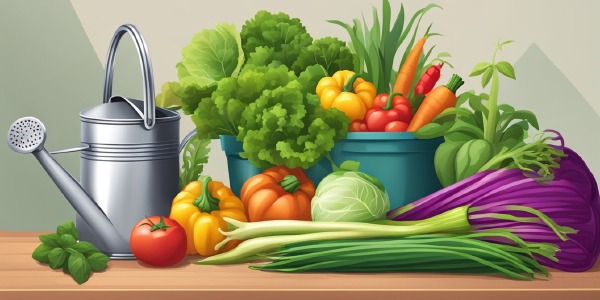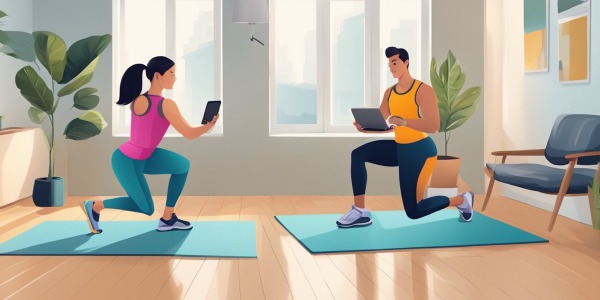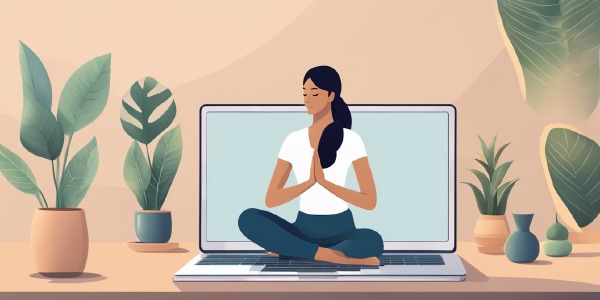The Rise of Online Cooking Classes: Your Home-Based Culinary Journey Begins Here
The advent of online cooking classes has transformed the way people engage with the culinary arts. You no longer need to attend in-person classes to get high-quality culinary education.
These online platforms offer a variety of lessons ranging from basic cooking skills to advanced techniques, making it easy for home cooks to expand their culinary repertoire right from their own kitchens.
The convenience and flexibility provided by online courses allow you to learn at your own pace and on your own schedule.

As online learning becomes more popular, you might find yourself spoilt for choice with the wide array of online cooking classes available.
Whether you prefer step-by-step instruction for beginners or more complex courses designed for experienced cooks looking to refine their skills, there’s something for every aspiring chef.
Through these classes, you can learn how to prepare delectable dishes, understand complex culinary concepts, and gain confidence in your cooking abilities. Moreover, you’ll discover how to effectively set up your kitchen like a classroom, ensuring that the learning environment is conducive to success.
The benefits of online cooking classes extend beyond convenience; they also provide a platform for you to connect with a community of like-minded food enthusiasts and professionals.
Engaging with this virtual community can offer support, motivation, and even networking opportunities to help advance your culinary journey.
Additionally, expert instructors are accessible to guide you through the learning process, often with tailor-made feedback that can enhance your skills significantly.
Key Takeaways
- Online cooking classes provide a convenient and accessible way to learn culinary skills from home.
- There is a wide range of courses available, catering to various skill levels and culinary interests.
- These classes offer benefits such as flexible learning schedules, community engagement, and opportunities for personalized guidance.
Discovering Online Culinary Education

In your quest to refine your cooking skills from the comfort of your home, you’ll find a wealth of online culinary education options at your fingertips.
History and Evolution of Cooking Classes
Cooking classes have a storied past, with their roots tracing back to home economics courses and gourmet cooking sessions in the early 20th century. They began as intimate gatherings where chefs shared their expertise with avid home cooks.
Over the years, these classes evolved, branching out into specialized cuisines and techniques, catering to a growing audience eager to enhance their culinary prowess.
Transition to the Digital Era
With the advent of the internet, cooking classes underwent a significant transformation. They shifted from traditional settings to digital platforms, providing you with access to a global kitchen classroom. Bullet points highlight this shift:
- Accessibility: No longer confined by location, you can now learn from renowned chefs across the globe.
- Variety: Courses range from basic cooking techniques to advanced culinary arts, including baking, international cuisines, and dietary-specific recipes.
- Technology: Interactive features, such as live Q&A sessions and feedback from instructors, enrich your learning experience.
This digital leap has democratized culinary education, making it possible for you to delve into culinary arts regardless of your previous experience or geographical constraints.
Types of Online Cooking Classes

With the vast array of online cooking classes, you can sharpen your culinary skills right from your own kitchen.
Whether you’re seeking the flexibility of recorded sessions or the dynamic interaction of live classes, there’s something tailored to your preferences and schedule.
Recorded vs. Live Classes
Recorded Cooking Classes allow you the convenience to learn at your own pace. Platforms like MasterClass offer a diverse library of pre-recorded lessons from renowned chefs.
You can pause, rewind, and rewatch these sessions, ensuring you truly master the techniques demonstrated.
On the other hand, Live Classes provide a real-time experience with immediate interaction and feedback.
With platforms such as Sur La Table and Airbnb Experiences, you engage directly with culinary experts, ask questions, and receive personalized advice as you cook.
Casual vs. Professional Courses
For hobbyists, casual courses are relaxed and fun, focusing on the enjoyment of cooking as a leisure activity.
These courses often feature simple-to-follow recipes and techniques suitable for beginners or those looking to enjoy a stress-free cooking experience.
In contrast, Professional Courses are designed for those aiming to seriously advance their culinary skills or career.
Offerings like ChefSteps provide in-depth instructions on advanced cooking techniques, food science, and even plating aesthetics — the essentials for budding professionals.
Specialized Cuisine Classes
Explore the world on your plate with Specialized Cuisine Classes.
You’ll find a wide selection dedicated to specific types of cuisine, be it Italian, Japanese, or vegan cooking.
This customization allows you to delve deeply into the culinary traditions and techniques unique to each geographic or dietary-specific style.
For instance, through certain courses, you might focus on perfecting your pasta-making skills, while others might guide you through the complex flavors of Indian cuisine.
There’s a rich tapestry of flavors to discover, and specialty classes can transport you to different corners of the globe, all from the comfort of your kitchen.
Choosing the Right Online Cooking Class

Selecting an online cooking class that caters to your culinary interests and skill level is essential for a satisfying and educational experience.
Consider the expertise of the instructors and the course structure to ensure it meets your goals.
Assessing Skill Level and Interest
Before you dive into a course, honestly evaluate your current knife skills and overall cooking proficiency.
If you’re a beginner, look for classes that cover basic techniques and foundational recipes. For those passionate about a specific cuisine, seek out specialized courses that focus on those cultural cooking styles.
Identify whether you’re interested in casual cooking or if you aim to reach a level of a culinary expert.
Evaluating Class Instructors
Renowned chefs like Gordon Ramsay, Thomas Keller, Alice Waters, and Chef Eric often offer online cooking classes teaching their signature techniques.
Research the instructors’ culinary backgrounds and accolades to determine if their expertise aligns with your learning objectives.
Look for ratings and reviews from past students to gauge the effectiveness of their teaching.
Understanding the Syllabus and Structure
Carefully review the class syllabus to ensure it covers the topics you’re interested in, such as specific recipes or advanced techniques.
Check if the course structure includes a mix of video content, live sessions, and opportunities for feedback on your culinary progress.
Be certain that the class schedule accommodates your availability, so you can fully engage with the content.
Setting Up Your Home Kitchen Classroom

Transforming your home kitchen into a functional classroom is essential for maximizing the benefits of online cooking classes. A well-equipped and organized space ensures smooth learning and practicing of new culinary skills.
Gathering Necessary Equipment
Knives: Start with a basic chef’s knife, paring knife, and serrated knife for versatility. Ensure they are sharp, as good knife skills are crucial for safely chopping and cutting vegetables.
- Chef’s Knife: For slicing, dicing, and mincing.
- Paring Knife: For peeling and trimming small fruits and vegetables.
- Serrated Knife: Ideal for slicing bread and delicate items.
Cutting Boards: Opt for a sturdy cutting board that doesn’t slip for safe chopping. Have at least one for fresh produce and another for raw meats to prevent cross-contamination.
- Wooden Board: Best for vegetables and bread.
- Plastic Board: Preferrable for raw meat and easy cleaning.
Cookware: Ensure you have a set of pots and pans for different cooking needs. A large pot for soups and boiling, a saucepan for sauces, and a frying pan for sautéeing should cover the basics.
- Large Pot (6-8 quart): For boiling pasta or making stocks.
- Saucepan (2-3 quart): Perfect for sauces and small batches of soup.
- Frying Pan (10-12 inch): Suitable for most sautéeing and frying tasks.
Organizing Your Workspace
Keep your counters clean and clear. Assign areas for prepping, cooking, and plating. Store your equipment within reach but out of the way when not in use.
Use utensil holders, pot racks, and clear containers for easy access to tools and ingredients while you work.
- Prep Area: Designate a spot for chopping and preparing ingredients. Keep it close to cutting boards and knives for efficiency.
- Cooking Area: Ensure pots, pans, and cooking utensils are easily accessible near the stovetop.
- Plating Area: Reserve a space for the final presentation of your dishes, away from the mess of prep and cooking.
Pre-Class Preparation
Before your online cooking class begins, read through the recipe thoroughly and familiarize yourself with the cooking techniques you’ll be practicing.
Prep your ingredients by washing and cutting vegetables and gathering spices.
Setting out equipment and ingredients before class starts will help you focus on learning without last-minute searches.
- Mise en Place: This French term means “everything in its place”. Measure and chop ingredients beforehand and arrange them in the order they’ll be used.
- Technical Prep: Check your internet connection, angle your camera to capture your work area effectively, and ensure your devices are fully charged or plugged in.
Developing Essential Culinary Skills

Online cooking classes can empower you with the proficiency needed to excel in a variety of culinary tasks.
From handling knives with confidence to creating indulgent desserts, these skills form the foundation of your home cooking journey.
Mastering Knife Skills
Your ability to handle and use knives safely and accurately is crucial in the kitchen.
Knife skills include techniques like chopping, dicing, mincing, and julienning.
A well-structured online class will provide you with video tutorials on cutting different types of vegetables and meats, ensuring precision and safety. Lesson by lesson, you will see your speed and efficiency improve.
- Chop: Cutting into large squares
- Dice: Cutting into small squares
- Mince: Cutting into very small pieces
- Julienne: Cutting into thin strips
Learning about Stocks and Sauces
A comprehensive understanding of stocks and sauces will take your cooking to the next level.
Learn to create a flavorful stock as the foundation for soups and sauces.
From there, move on to mastering the five mother sauces—béchamel, vinaigrette, hollandaise, espagnole, and tomato—which can be customized with additional ingredients like herbs and spices to enhance your main dishes.
- Stock Basics: Chicken, beef, vegetable
- Mother Sauces:
- Béchamel: Milk-based, thickened with roux
- Vinaigrette: Oil and vinegar emulsion
- Hollandaise: Egg yolk and butter emulsion
- Espagnole: Brown sauce with tomatoes
- Tomato Sauce: Tomatoes, seasonings, and sometimes stock
Perfecting Preparation of Main Dishes
Creating standout main dishes requires practice and knowledge of techniques such as roasting, grilling, sautéing, and braising.
Online classes can walk you through various recipes, helping you understand the nuances of cooking times and methods.
Whether it’s perfectly seared steak or a succulent roast chicken, each dish will enhance your culinary repertoire.
- Techniques:
- Roasting: High heat for even, outside browning
- Grilling: Direct heat for distinct char marks
- Sautéing: Quick cooking in a small amount of oil
- Braising: Slow cooking in liquid
Experimenting with Side Dishes
Side dishes like vegetables and potatoes require their own set of skills.
Experiment with different recipes to achieve the perfect texture and flavor balance.
Bake, mash, roast, or sauté vegetables to complement the main course.
Learn the timing of cooking and how to season effectively to elevate these sides from simple to sensational.
- Side Dish Favorites:
- Roasted Vegetables: Olive oil, salt, and roasting for caramelization
- Mashed Potatoes: Creaminess with butter and milk
- Sautéed Greens: Quick cook, olive oil, garlic
Conquering Baking and Desserts
Dessert is the sweet finale to any meal, and online courses offer a variety of baking and dessert recipes to satisfy your sweet tooth.
Understand the delicate balance of ingredients and precise measurements needed to create exquisite cakes, pastries, and more.
Whether it’s mastering the perfect pie crust or the fluffy sponge cake, each dessert will help solidify your baking prowess.
- Baking Fundamentals:
- Measuring: Precision ensures consistency
- Mixing: Correct technique affects texture
- Baking: Accurate temperature and timing are key
Engaging with the Virtual Culinary Community

Online cooking classes offer more than just instructional content; they are gateways to join vibrant culinary communities.
Building Relationships through Class Participation
When you enroll in online cooking school, your experience goes beyond following recipes and techniques.
You become part of a community where feedback is invaluable.
Engage with fellow learners by participating in class discussions and sharing your culinary creations on platforms like Instagram.
This not only enhances your skills but also allows for constructive critique that can transform your cooking.
- Interact: Comment on peers’ dishes, sharing insights or asking questions.
- Share: Post your own dishes using course-specific hashtags.
- Celebrate: Congratulate classmates on their culinary successes.
Navigating Online Platforms and Resources
To fully harness the potential of virtual classes, familiarize yourself with the digital platforms being used.
Whether it’s a bespoke classroom interface or a streaming session on Instagram Live, understanding the technology will enhance your learning.
ChefSteps and similar online cooking schools often furnish a blend of resources, from video libraries to Q&A sessions.
Here’s how to make the most of these tools:
- Explore: Locate tutorials and FAQ sections for tech support.
- Bookmark: Save useful cooking tips and recipes for easy reference.
- Participate: Join live events and webinars for direct access to expert chefs.
Advancing Your Skills with Expert Guidance

Online cooking classes have revolutionized the way you can learn culinary arts. Now, you can sharpen your culinary techniques under the tutelage of some of the world’s finest chefs, from the comfort of your home.
Accessing Masterclasses by Renowned Chefs
Gordon Ramsay, Massimo Bottura, and Aaron Franklin are among the illustrious names offering their expertise through masterclasses.
These are not your average cooking videos; they are curated sessions where these professional chefs share their unique skills and philosophies on cooking.
Here’s how you can access these classes:
- Masterclass Platform: Sign up and subscribe for an all-access pass.
- Chef Selection: Choose from a roster of chefs based on your culinary interests.
Each chef brings a distinctive culinary approach:
| Chef | Cuisine Focus | Popular Courses |
|---|---|---|
| Gordon Ramsay | Modern European | Essential Cooking Techniques |
| Massimo Bottura | Italian | Modern Italian Cooking |
| Aaron Franklin | Barbecue | Texas-Style BBQ Techniques |
Receiving Personalized Coaching
Beyond the pre-recorded masterclasses, you can also find opportunities for personalized coaching from professional chefs.
This one-on-one instruction is designed to:
- Hone specific skills or recipes you’re passionate about.
- Receive feedback on your cooking techniques to improve faster.
Connecting with a chef for personalized coaching might involve:
- Joining membership-based forums or communities where chefs offer tailored advice.
- Booking private sessions, which may be available through certain platforms.
Maximizing Online Learning Opportunities

To get the most out of online cooking classes, be proactive in seeking discounts, adhere to a structured learning plan, and set clear objectives to stay engaged.
Taking Advantage of Promo Codes and Offers
Keep an eye out for promo codes and special offers that can make online cooking classes more affordable.
Many platforms offer introductory discounts or seasonal deals.
Sign up for newsletters from your favorite cooking websites or follow them on social media to stay updated on the latest promotions.
- Check the main page or pricing section of the cooking class website for any visible offers.
- Subscribe to cooking-related newsletters for potential subscriber-exclusive discounts.
- Follow culinary educators on platforms like Instagram or Twitter for timely updates on flash sales or promo codes.
Creating a Learning Schedule
Creating a schedule helps you integrate cooking classes into your routine without feeling overwhelmed.
Determine specific days and times for your classes, and use online tools or apps to set reminders.
This consistency aids in building a productive learning habit.
- Choose consistent days and times each week for your class participation.
- Utilize calendar apps to remind you of your scheduled classes.
- Carve out additional time for practicing the skills you’ve learned outside of class hours.
Staying Motivated and Setting Goals
Motivation is key to sustaining your culinary education journey.
Set specific, achievable goals, such as mastering a particular cooking technique or recipe by a certain date.
Celebrate your progress with photos of your dishes or share them with friends for feedback, encouraging continued learning.
- Short-term goals: Perfect a specific dish or technique each week.
- Long-term goals: Aim to complete a full cooking course within several months.
- Document progress with photos and solicit feedback from peers to foster a sense of accomplishment and receive constructive insights.
Taking the Next Steps in Your Culinary Journey

Advancing your culinary skills from the comfort of your home has never been easier or more enjoyable.
Planning an Online Date Night or Private Class
A memorable online date night can be as simple as selecting a cooking class that piques both your interests.
With the popularity of virtual experiences, many platforms offer private cooking classes that are perfect for couples. Here’s how you can organize one:
- Choose a Platform: America’s Test Kitchen, as well as other renowned cooking websites, often host special events.
- Set the Date: Coordinate with your partner and the cooking instructor to pick a suitable evening.
- Menu Selection: Decide on a menu that offers both a challenge and the potential for an intimate dining experience post-class.
Exploring Advanced Culinary Programs
As you grow more confident in your abilities, consider enrolling in an advanced culinary program. These are aimed at enhancing your skill set and cover a wide variety of techniques and cuisines.
To embark on this journey:
- Research: Look for programs that align with your culinary aspirations and offer a progression in difficulty.
- Commitment: Make sure you can dedicate the necessary time to practice the advanced skills you will learn.
- Equipment: Ensure you have the essential kitchen tools as these courses often require more than just the basics.
By taking online cooking classes, you’re set to expand your culinary prowess and add a new zest to your meals right from your home kitchen.




